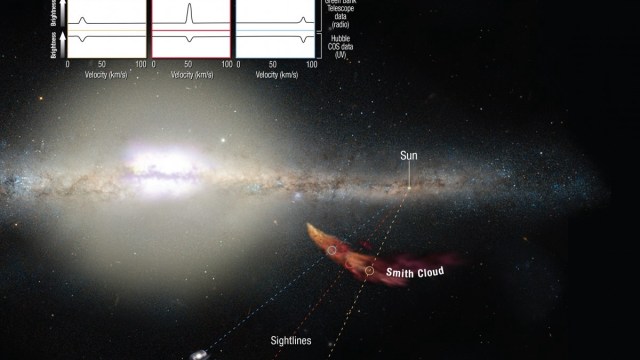Google Is Working on a Secret Internet-Delivery Project out in New Mexico

Google may have plans to add a new fleet to its aerial Internet-delivery program. This time it’s solar-powered drones instead of balloons.
The Guardian learned Google has been testing these drones as a part of its secret Project Skybender. It turns out Google has received permission from the FCC to conduct tests on a faster Internet-delivery system out at the Spaceport America facility in New Mexico.
The project falls under the Google X team, which is also responsible for Project Loon — an Internet-delivery system made up of balloons. The balloons fly on the winds of the stratosphere, beaming down Internet signals to various access points across Indonesia’s 17,000 islands.
The drone-based delivery system sounds similar to Facebook’s own solar-powered Internet drones, but Google plans to go further. The team is experimenting with millimeter-wave radio transmissions, which can transmit gigabits of information every second — 40 times faster than 4G LTE.
“The huge advantage of millimeter wave is access to new spectrum because the existing cellphone spectrum is overcrowded. It’s packed and there’s nowhere else to go,” Jacques Rudell, a professor of electrical engineering, told The Guardian.
However, it has a much shorter range. If a drone were trying to transmit an Internet signal from way up in the stratosphere, it would fade out before it was received. Which is why Google is working on a focused transmission solution.
It’s uncertain what Project Skybender’s end goal will be in the grand scheme of Google’s plans. It could help connect those in countries who don’t have Internet access. However, Google’s and Facebook’s ambitions seem small in comparison to Elon Musk’s plans for a global Internet service delivered through satellites.
Musk continues to remind us how important it is to see opportunity in established industry, and to ask how we can make it better:
“When you’re looking for an opportunity, I think it’s important not so much to focus on just disruption for the sake of it, but rather where is an industry either stagnant or in decline, where the product or service has stayed pretty much the same or maybe even gotten worse over time?”
***
Photo Credit: Google
Natalie has been writing professionally for about 6 years. After graduating from Ithaca College with a degree in Feature Writing, she snagged a job at PCMag.com where she had the opportunity to review all the latest consumer gadgets. Since then she has become a writer for hire, freelancing for various websites. In her spare time, you may find her riding her motorcycle, reading YA novels, hiking, or playing video games. Follow her on Twitter: @nat_schumaker





